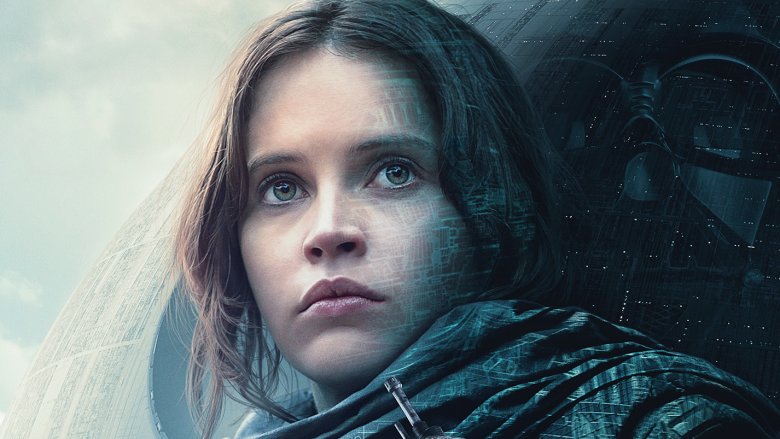Rogue One: Tony Gilroy Speaks Out About The Star Wars Story's Reshoots
A year and a half after its release, the filmmaker behind Rogue One: A Star Wars Story's extensive reshoots is finally speaking out about the Star Wars spinoff's storied reshoot process.
Tony Gilroy, who oversaw post-production work and additional photography for the inaugural "Star Wars story", has finally made his first substantial comments regarding his involvement in the movie's making, giving fans of the franchise a small amount of clarity as to how much of the finished project was his responsibility.
The filmmaker made his comments during an appearance on The Moment with Brian Koppelman, beginning his Rogue One-related commentary about 46 minutes into his guest spot on the hourlong podcast. Have a listen to the interview for yourself at the link.
His comments, while at times vague for his own professional sake, paint a sometimes-unsettling portrait about the current shepherds of the Star Wars franchise, and are sure to fuel all manner of message board arguments about Disney and Lucasfilm's approach to the series' many new entries — especially Solo: A Star Wars Story, which was also subjected to a reshoot process and director change that has proven quite notorious.
Gilroy was diplomatic in talking about the reshoot process while making it clear that the movie, on his arrival, was in need of repair.
"They were in a swamp," Gilroy said. "They were in so much, terrible, terrible trouble that all you could do was improve their position."
Speaking on his motivations for picking up the Rogue One job, Gilroy said it had to do with how fixable the predicament Disney and Lucasfilm were in seemed to him.
"When I saw what I saw, it was instantly clear to me the first thing that had to happen," Gilroy said. "I saw the purity that was missing, at least in terms of one or two of the characters."
Gilroy added that the problems he perceived with the production were "actually very, very simple to solve."
"'Oh, this is a movie where, folks, just look — everyone is going to die,'" Gilroy said. "So it's a movie about sacrifice [...] It's all a question about, why are all these people going to sacrifice? And you need to motivate them with a purity throughout the way."
Calling his lifelong disinterest in Star Wars as a series his "superpower", Gilroy said he was was able to make substantial changes to the movie without worrying about the implications they would have on the franchise.
"I had no reverence for [the series] whatsoever," he said. "I was unafraid about that."
Gilroy never went into a step-by-step breakdown of what exactly he changed about the movie as he assumed de facto control of its production, and was careful not to say anything that might reflect poorly on himself or others in the production.
While the filmmaker did not elaborate on what the perceived problems of Gareth Edwards' director's cut were, he did remind listeners that he did enough work on the film to be given a substantial writing credit without argument.
"I came in after the director's cut," Gilroy said. "[And] I have a screenplay credit, in the arbitration, that was easily won."
Speaking on that point, host Koppelman said, "It's clear you remade the movie."
The exchange indicates that Gilroy's additions to the film were so significant, there was little to no argument from the studio about his receiving writing credit — a remarkable set of circumstances considering the movie he signed on to was Edwards' completed version.
It's long been reported that the changes Gilroy made to the movie were significant, with many understanding him to be the movie's shadow director. Ben Mendelsohn, who starred in the movie as Director Krennic, previously told The Hollywood Reporter that an "enormously different" version of the movie existed prior to Gilroy's involvement, and many scenes or moments that were glimpsed in the movie's marketing were nowhere to be seen in the theatrical release.
Edwards remained Rogue One's sole credited director. The next movie in the Star Wars series, Solo: A Star Wars Story, is due out in theaters on May 25.
